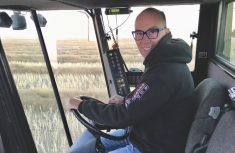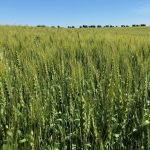Today’s farmers are confident. They are finding their voices and they are finally becoming viewed as the powerhouses they are.
Farmers are hungry to learn and they are also hungry to educate others. They are educating politicians, society and industry on the strength of their operations and on the economic contributions they make. Today’s farmers are building bridges between science, academia and business. While the recent Census of Agriculture still notes 44 per cent of farms require off-farm income, a growing number are large, multi-million-dollar operations and the farmers who run them are confident and professional.
Read Also

Executive decisions: what and when to delegate on the farm
Consider the end state you’re working to achieve on your farm when deciding what tasks to delegate, when to do so and on whom, farm management advisors recommend.
When I meet farm families today, at least one of the children is off to post-secondary school in agriculture. Today’s generation is eager to learn more. They have an appetite for information, and they are investing in technology. The census showed on today’s farms with sales greater than $1 million, 96 per cent are adopting technology, including everything from a smartphone to GPS mapping and automated animal feed systems. Indeed, 80 per cent of farmers under the age of 40 apply technology to their family farm.
This next generation is ready to lead and show, based on educated opinions, how they and technology can provide opportunities for improvement.
Some of the most successful farm operations have embraced this hunger for “disruptive farming techniques.” Just a few years ago you couldn’t imagine a tractor steering itself across a field, applying the seed or making other precision applications based on the needs of the crop at that exact point.
Just recently, while I was meeting with a father about his family business, his son came in to interrupt and explain to his father how the technology that the agronomist had given him, i.e. “an app,” said they should change the seed type for a certain area based on the recent conditions and soil analysis.
This timely information wasn’t accessible just five years ago — and may have made the difference in a crop being harvested versus a crop lost. It also allowed the son to show his ability to contribute to the farming operation by providing a new level of knowledge to his father.
This new appetite for learning and for exploiting technology happens all around me at family farms. I recently sat at a kitchen table and watched as a son and daughter explained to other members of the family business that recent data collected on the dairy herd showed a lack of certain nutrients in the feed. This analysis was supplied to the next generation by a piece of technology and the family agreed to make instant changes in the ration. And guess what? Herd performance was soon back on target.
It was inspiring to see the older generation openly ask the younger generation about the next steps and encouraging them to continue to implement as they had outlined. The “senior team” had confidence in the next generation and they encouraged them to bring their ideas forward.
Today’s farmers are not only inviting the next generation to speak up, there is also a new appetite to access professional resources to ensure they are doing the right thing with their hard-earned family business. Of course, they still want to know if they can save money on tax or probate or land transfer tax. But several families are seeing past just the “technical” side of transition planning and want to ensure they have included the family on the long-term outcome for the family business.
I work with several families that have more than just one revenue-generating part of the business. They would be considered a family farm enterprise. These families have a unique advantage but also require extensive advice and long-term planning services.
The most successful have long-term transgenerational views. They view their business as a way to include their entire family on decisions that have an impact on both the business and the family. They have good governance in place to ensure the farm is self-managed and successful. They have us facilitate family meetings. They see value in having a quarterback — someone overseeing the accounting, tax and legal aspects for their family and their family business. It becomes a seamless system, with no overlap and no gaps in communication. It’s a new desire to do things differently, incorporating professionals for guidance.
The next generation of farmers — like a new generation of seed — has all the right factors and growing season ahead of it, if they are willing to learn and adapt. If they are starving for growth, it’s because we have given them room to roam, and a talent for exploring the unknown and prosper. They have an appetite to do more, and to try and do it better. Let’s give them the opportunity to make it impactful while we are here to reap what we have sown.
Darrell Wade is a certified family enterprise adviser and a CFA-certified farm adviser. He is the founder of Farm Life Financial Planning Group and can be reached directly at [email protected].















